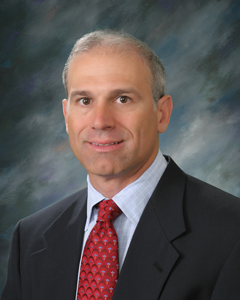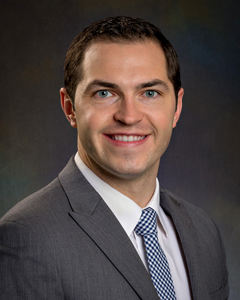Low Testosterone in Men

Low testosterone, a form of hypogonadism, occurs when the body fails to produce an adequate supply of this hormone. This condition is more prevalent as men age, occurring in about 20 percent of men age 60 and older and increasing to as much as 50 percent in men age 80 and older. While testosterone is thought of as the male hormone, it is necessary for female functioning as well, and women may also suffer from low testosterone.
Testosterone is a sex hormone naturally produced within the body. In men, this hormone helps to maintain sperm production, control sex drive, and regulate muscle mass and bone health. The pituitary gland and the brain control the production of testosterone which is secreted through the testicles.
Symptoms of Low Testosterone
Symptoms of low testosterone in men may include increased body fat, enlarged breasts, reduced muscle mass, diminished bone density and decreased energy. Sexual symptoms include the following:
- Low libido (sex drive)
- Inability to reach orgasm
- Erectile dysfunction
- Low sperm count
- Diminished volume of seminal fluid
- Smaller or softer testicles
Men with low testosterone may also experience sadness, irritability, or depression.
Schedule an appointment at one of the three Pioneer Valley Urology offices in Springfield, Palmer and Enfield for a thorough examination and diagnosis if you believe you are experiencing symptoms of of low testerosterone. We see patients throughout northern Connecticut -- Ellington, Windsor, East Granby, Suffield -- and south central Massachusetts -- Wilbraham, Chicopee, Agawam, Westfield, Longmeadow, Holyoke, Hampden, Palmer, Monson, Belchertown, Ware, Warren, Brookfield, Sturbridge, and Granby.
Causes of Low Testosterone
The causes of low testosterone in men can vary and may include the following:
- Injury or infection of the testicles
- Treatment for testicular cancer
- Hormonal disorders
- Infections or chronic diseases
- Nutritional deficiencies
- Andropause (male menopause) due to natural aging
Some medications and certain genetic conditions can also lower a man's testosterone reading. Men who are hypertensive, obese, or who have elevated cholesterol levels may also suffer from low testosterone levels.
Diagnosis of Low Testosterone
To diagnose low testosterone, the doctor will perform a physical examination and review all of the patient's symptoms. Testosterone levels are measured with a blood test, but other diagnostic tests may be administered as well, including:
- Urinalysis
- Sperm count
- PSA test for prostate cancer
- Hematocrit
The hematocrit, which measures the red blood cell count, is taken because testosterone treatment can result in an increase of red blood cells.
Complications of Low Testosterone
In addition to negatively affecting quality of life and intimate relationships, low testosterone can be a factor in several disease conditions. Recent research suggests that men with low testosterone are at increased risk of developing diabetes, osteoporosis, and cardiovascular disease.
Treatment of Low Testosterone
Treatments for low testosterone involve replacing the hormone in the body. Often referred to as testosterone replacement therapy, these methods include administering the hormone through:
- Gel, cream, or patches applied to the skin
- Injections
- Subcutaneous pellets
- Oral inserts (sublingual or buccal)
This treatment is effective in restoring normal testosterone levels in the male body and reducing symptoms. Testosterone replacement therapy is considered a lifelong treatment option. It is important that men taking testosterone be carefully monitored by their doctors.
Risks of Testosterone Treatment
Men treated with testosterone are at an increased risk of developing an enlarged prostate or urinary tract symptoms. Patients with kidney, liver, or heart problems may increase their risk of edema (fluid retention) by taking testosterone. Testosterone can also exacerbate sleep apnea. Though used as a fertility treatment in the short term, the long-term use of testosterone may interfere with fertility. Testosterone treatments are not usually recommended for men who have been treated for prostate or breast cancer.










